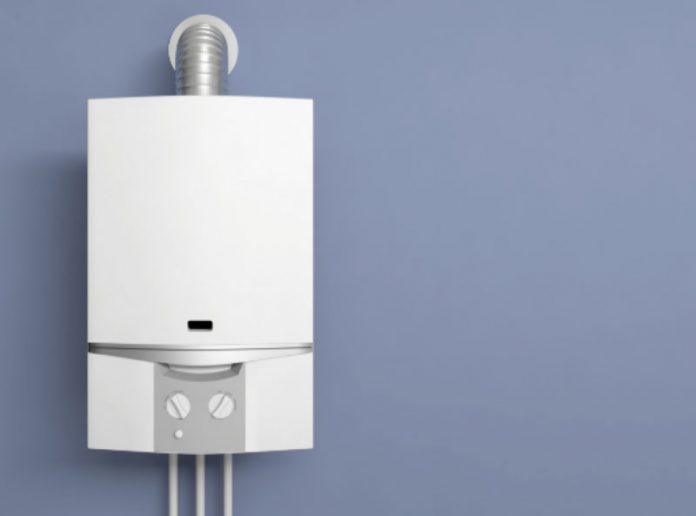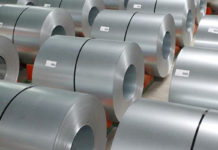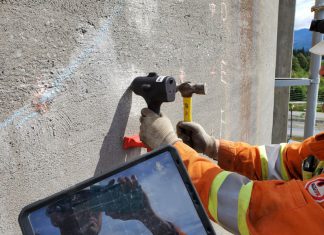Commercial water storage tanks have been around for over 130 years. When water heaters were first invented in 1889, the units were constructed of thick copper, and highly energy efficient – albeit very expensive. In 1929, an inventor name Stiebel-Elton invented the first tankless water heater.
However, it wasn’t until the 1990s when tankless water heaters made an impact on the US markets with the energy efficient and space saving features.
SPACE SAVER
You don’t have to live in a tiny apartment to realize the value of floor space. A traditional hot water heater has a two foot base, weighs over 500 pounds and may reach over six feet tall. Whereas, a tankless hot water heater is about the size of a small suitcase, weighs approximately 100 pounds and hangs on the wall – saving floor space. An eco friendly bonus to the small size of the tankless water heater is when it needs to be replaced the unit takes up less space in landfills.
HOW DO TANKLESS WATER HEATERS WORK?
In order to fully understand how tankless water heaters work, it is best to discuss how traditional water heaters work to make the comparison. A traditional water heater fills with water, continually heats the water to a constant temperature to be ready when the faucet is turned on. Since a traditional heater system keeps the stored water heated, they waste a lot of energy.
In contrast, tankless water heaters only heat the water as needed. When a faucet is turned on a tankless water heater senses the water flow, usually 0.5 gallons per minute (GPM), however each unit varies. When the minimum flow rate is reached the system ignites, water flows into the unit, the heaters kick in and flash-heat the water as it flows through the heat exchanges. Since there is no stored water being continually heated, the savings can amount to 40 percent.
Just as with a traditional hot water heater, when the hot water faucet is turned on and it is connected to a tankless water heater, you will not receive hot water instantly because the water generally will need to run a few minutes before hot water reaches the faucet. Even though there is still a wait time for hot water, but when it starts flowing – it is an endless supply.
ENDLESS SUPPLY OF HOT WATER
Are you ever the last person in line to take a shower and had to enjoy a lukewarm or even a cold shower? An on-demand or tankless water heater solves this problem. Tankless heaters are often referred to “on-demand” heaters, because they provide you with the amount of hot water you need, when you need it, using only the amount of energy it takes to heat that specific amount of water.
However there is a caveat, you may experience drastic fluctuations in the water temperature if hot water is needed simultaneously elsewhere. It is best when researching which tankless hot water heater is best for you to consider your hot water demands – how many showers are taken at the same time and other appliances running at the same time.
WORTH THE INVESTMENT?
It’s always best to do your homework when considering making an investment into a new water heater. Traditional water heaters normally need replacing every ten to fifteen years. Whereas, tankless water heaters are durable and built to last twenty to twenty-five years lasting five to ten years longer over a traditional water heater.
Even though the money savings may be substantial, it will be spread over decades of usage. Plus, the investment is not just the cost of the heater, but tankless water heaters are more labor intensive resulting in higher installation cost.
ECO FRIENDLY
The obvious environmental advantage is saving energy. However, today’s gas tankless water heaters have virtually zero emissions and are eco friendly. Most models use low NOx technology to keep emissions low.
While tankless systems are definitely more “green” than the tanked counterparts, the benefits are more collective than personal.
WHAT DOES CONDENSING MEAN?
Often when researching tankless water heaters you may see the terms – condensing and non-condensing. Here is a brief summary of their meanings
- Condensing Tankless Water Heater – refers to the way the system extracts the exhaust gases and uses it to preheat the incoming cold water as it passes through the heat exchanger.
- Non-condensing Tankless Water Heater – is used when the system pushes the exhaust gas outside to vent. These gases are around 300°F so special non-corrosive materials are needed for the pipes to withstand these temperatures. These materials are often very expensive.
WARRANTY
Since tankless water heaters are designed to outlast traditional heaters, normally they offer a longer warranty. Some companies even offer full replacement warranties should the need arise.
However, most warranties will become void if certain stipulations are not met. Such as –
✔Adhering to a maintenance schedule
✔Adding a water softener system, if needed
✔Providing an annual cleaning to the system
These are added cost to factor in when deciding on a tankless system.
NO FLOOD ZONE
Have you ever heard the horror stories of a ruptured traditional hot water heater tank and the whole house floods? Unfortunately, it happens.
However, since tankless heaters do not have a tank to rupture, there is no fear of flooding.
CONCLUSION
When the time comes to replace your old, bulky water heater, consider a tankless water heater. The best way to guarantee you are getting the right size and capacity for your needs is to contact a plumbing engineer in Chicago, New York or throughout the world.
Just to recap a few highlights tankless water heaters offer –
✔Unlimited hot water supply
✔Eco Friendly – Low emissions
✔Reduced energy consumption – only heats the water as needed!
✔Small – attaches to the wall / saves valuable floor space
✔Long lifespan
These heaters offer excellent advantages that will make them a wise investment for years to come.
AUTHOR’S BIO
Michael Tobias, PE, is the founder and principal of Chicago Engineers, an Inc 5000 Fastest Growing Company in America. Michael graduated from Georgia Tech in 2004 with honorary mentions. Michael and his team of 30+ engineers specialize in mechanical, electrical, and plumbing (MEP) engineering services in Chicago and New York.















